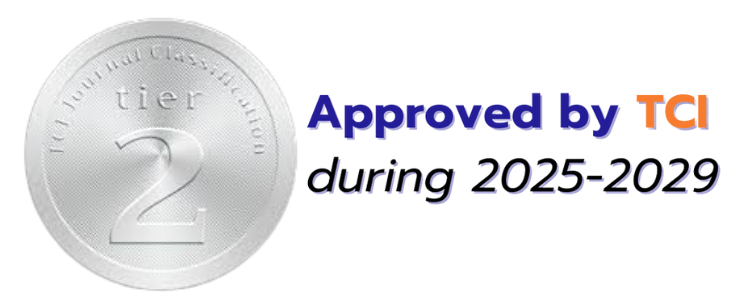การพัฒนารูปแบบส่งเสริมทักษะการคิดอย่างมีวิจารณญาณในการออกแบบตัวละครแอนิเมชันในรายวิชาแอนิเมชัน 3 มิติ
关键词:
รูปแบบส่งเสริมทักษะการคิดอย่างมีวิจารณญาณ, การคิดอย่างมีวิจารณญาณ, การออกแบบตัวละครแอนิเมชัน, แอนิเมชัน 3 มิติ摘要
การวิจัยนี้มีวัตถุประสงค์เพื่อ 1) วิเคราะห์ปัจจัยที่ส่งเสริมทักษะการคิดอย่างมีวิจารณญาณในการออกแบบตัวละครแอนิเมชันในรายวิชาแอนิเมชัน 3 มิติ 2) พัฒนารูปแบบส่งเสริมทักษะการคิดอย่างมีวิจารณญาณในการออกแบบตัวละครแอนิเมชันในรายวิชาแอนิเมชัน 3 มิติ และ 3) ประเมินความเหมาะสมของรูปแบบส่งเสริมทักษะการคิดอย่างมีวิจารณญาณในการออกแบบตัวละครแอนิเมชันในรายวิชาแอนิเมชัน 3 มิติ โดยใช้ระเบียบวิธีวิจัยแบบผสมผสาน ประกอบด้วยการวิเคราะห์เอกสาร การสัมภาษณ์ผู้ทรงคุณวุฒิ 5 คน และการประเมินด้วยเทคนิค Delphi จากผู้เชี่ยวชาญ 17 คน เครื่องมือวิจัยได้แก่ แบบสัมภาษณ์ แบบสอบถาม และแบบประเมินรูปแบบ วิเคราะห์ข้อมูลเชิงคุณภาพด้วยการวิเคราะห์เนื้อหา และเชิงปริมาณด้วยค่ามัธยฐาน (Median) และค่าพิสัยระหว่างควอไทล์ (IQR) ผลการวิจัยพบว่า 1) ปัจจัยสำคัญจำแนกได้ 5 ด้าน ได้แก่ กระบวนการเรียนรู้ บทบาทผู้สอน สื่อและเทคโนโลยี สภาพแวดล้อมการเรียนรู้ และคุณลักษณะผู้เรียน โดยมีความเหมาะสมในระดับมากที่สุด (Median4.59–4.77, IQR 0.22–0.26) 2) รูปแบบส่งเสริมทักษะการคิดอย่างมีวิจารณญาณในการออกแบบตัวละครแอนิเมชันในรายวิชาแอนิเมชัน 3 มิติ ได้รับการประเมินว่าเหมาะสมในระดับมากที่สุด (Median 4.63–4.75, IQR 0.25–0.30) และ 3) ผลการประเมินความเหมาะสมของรูปแบบโดยผู้เชี่ยวชาญ มีความเหมาะสมในระดับมากที่สุด (Median 4.45–4.85, IQR 0.53–0.69) สะท้อนถึงรูปแบบส่งเสริมทักษะการคิดอย่างมีวิจารณญาณนี้มีความเหมาะสมและสามารถนำไปใช้ได้จริง
Downloads
参考
Chen, Y., Zhang, X., & Hu, L. (2024). A progressive prompt based image generative AI approach to promoting students’ achievement and perceptions in learning ancient Chinese poetry. Educational Technology & Society, 27(2), 284–305. https://doi.org/10.30191/ETS.202404_27(2).TP01
Gao, B. (2024). Research on the development of the deep integration of digital media technology and modern art education. Advances in Social Science, Education and Humanities Research, 545, 354–358. https://doi.org/10.2991/assehr.k.210331.066
Henderson, J. B., Marley, S., Wilcox, M. J., Nailor, N., Sowl, S., & Close, K. (2020). Challenges assessing the impact of project-based learning on critical thinking skills. Journal of Assessment and Institutional Effectiveness, 10(1–2), 33–60. https://doi.org/10.5325/jasseinsteffe.10.1 2.0033
Huang, N. N., Chang, Y.-S., & Chou, C.-H. (2020). Effects of creative thinking, psychomotor skills, and creative self efficacy on engineering design creativity. Thinking Skills and Creativity, 37, 100695. https://doi.org/10.1016/j.tsc.2020.100695
Kallick, B., & Zmuda, A. (2017). Students at the Center: Personalized Learning with Habits of Mind. ASCD.
Manalo, E. (2019). Introduction: Establishing a case for sharing research based instructional strategies. In Deeper learning, dialogic learning, and critical thinking: Research-based strategies for the classroom (pp. 1–13). Routledge.
Moustafa, A., & Al Rashaida, M. (2024). Fostering students’ critical thinking through the implementation of project-based learning. In R. M. Magsino (Ed.), Educational technology and critical thinking (pp. 62–78). IGI Global. https://doi.org/10.4018/979-8-3693-0880-6.ch004
Ozkan, Z. C. (2023). The effect of project-based learning in visual arts lessons on students’ outcomes and attitudes. International Journal on Social and Education Sciences, 5(2), 367–380. https://doi.org/10.46328/ijonses.565
Pujawan, I. G. N., Rediani, N. N., Antara, I. W. S., Putri, N. N. C. A., & Bayu, G. W. (2022). Revised Bloom taxonomy oriented learning activities to develop scientific literacy and creative thinking skills. Journal Pendidikan IPA Indonesia, 11(1), 47–60. https://doi.org/10.15294/jpii.v11i1.34628
Rovinelli, R. J., & Hambleton, R. K. (1976). On the use of content specialists in the assessment of criterion-referenced test item validity (Research Report No. 76-4). Paper presented at the Annual Meeting of the American Educational Research Association (AERA), San Francisco, CA. ERIC. https://eric.ed.gov/?id=ED121845
Wang, X., Hampton, J., Ritzhaupt, A. D., & Dawson, K. (2022). Trends and priorities of educational technology research: A Delphi study. Contemporary Educational Technology, 14(4), Article ep383. https://doi.org/10.30935/cedtech/12317
Downloads
已出版
期
栏目
License
Copyright (c) 2025 วารสารศาสตร์การศึกษาและการพัฒนามนุษย์

This work is licensed under a Creative Commons Attribution-NonCommercial-NoDerivatives 4.0 International License.







